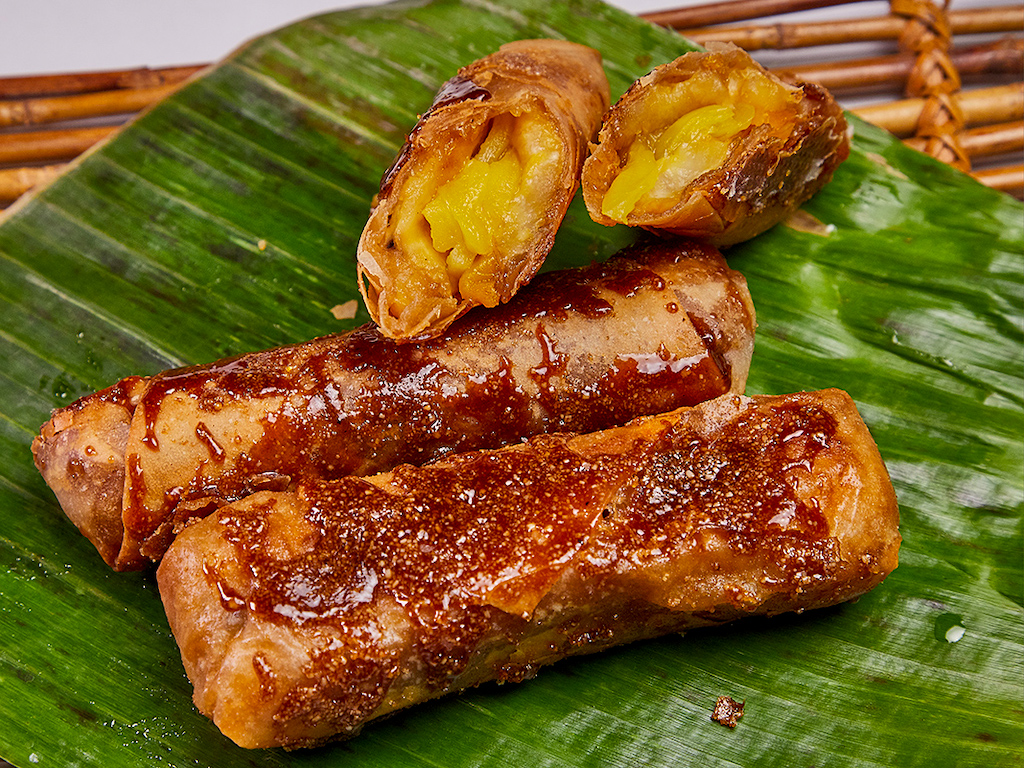4 Mins Read
This may come as a surprise to you, but street stalls in the Philippines are loaded with meat and dairy-free options. Whilst sizzling baboy (pork) and Pinoy roast manok (chicken) still feature heavily on most sidewalks in Manila, you don’t have to look very hard to find accidentally plant-based nibbles either, from fried bananas to cassava cakes. Here are some of the best 100% Filipino vegan street food dishes beloved by herbivores and omnivores alike that you can keep in mind for your plant-based travels!
Banana-cue
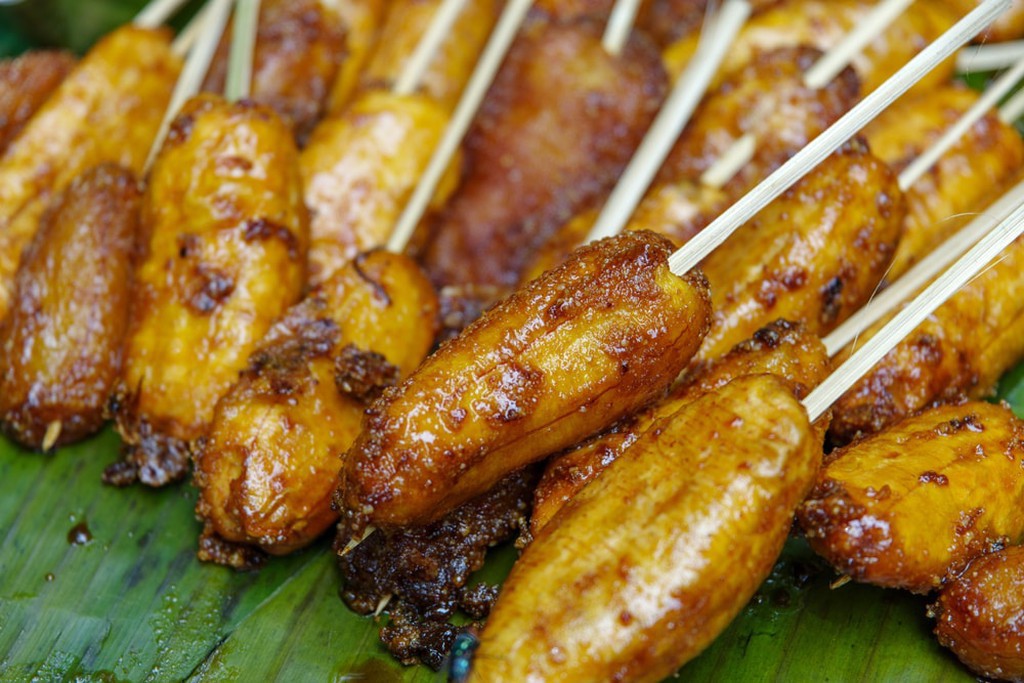
A staple Filipino street snack, banana-cue are deep-fried plantain bananas coated in plain or caramelised brown sugar. Sometimes, they are wrapped inside a spring roll wrapper with some jackfruit and deep-fried until golden brown and crispy – this version is called turon.
Puto
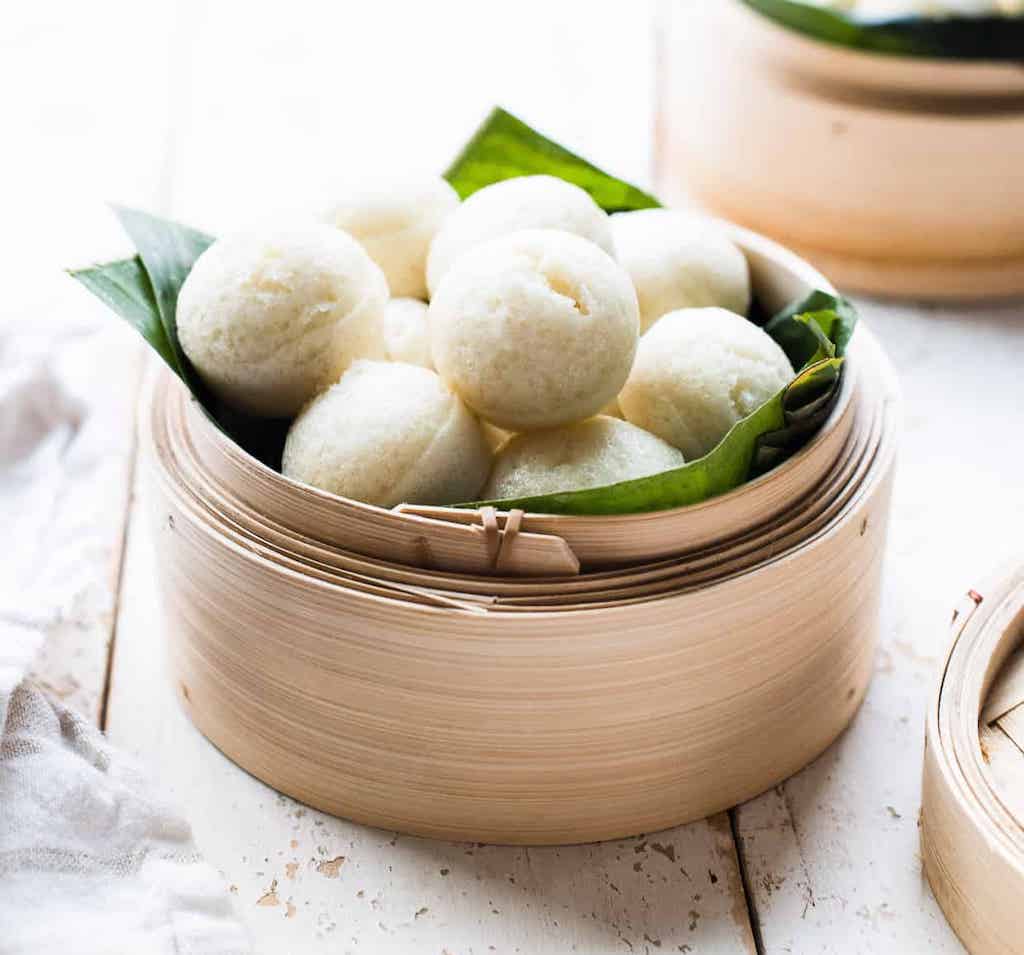
This delicious sidewalk dish is a steamed sticky rice cake traditionally made with fermented rice dough called galapong. Puto are sometimes coloured with natural ingredients such as ube and pandan, and taste salty and sweet at the same time. But remember to check with the vendor about whether their puto contains egg, cheese or milk – sometimes it is added to the batter or as a topping.
Fried tokwa
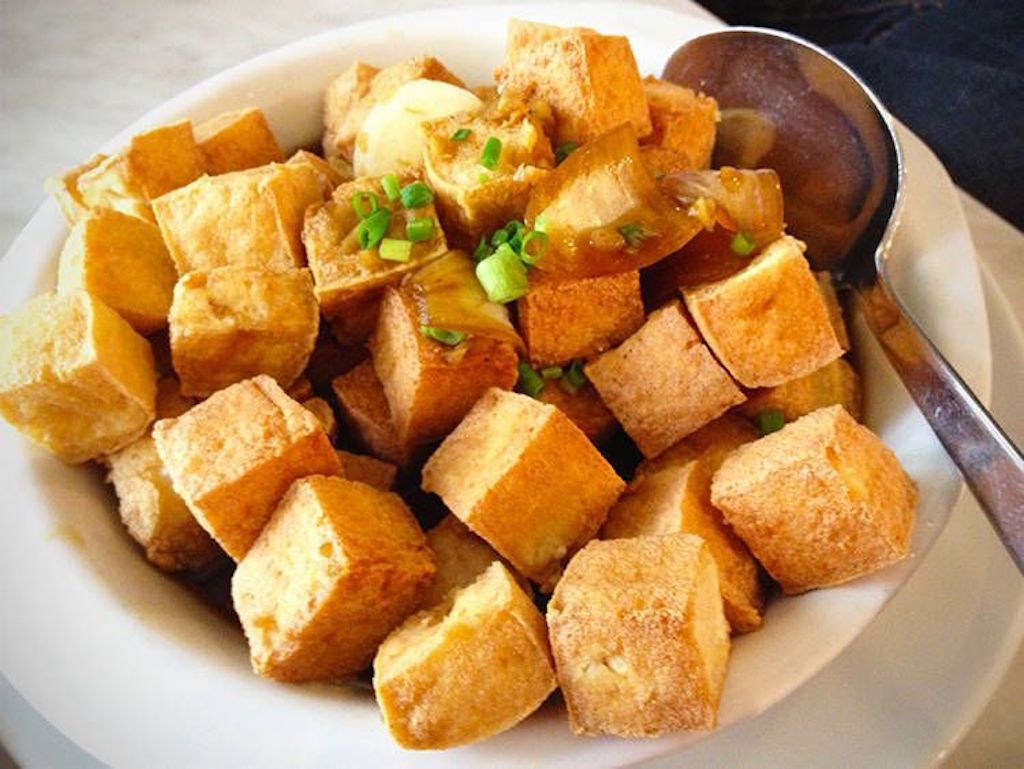
Fried tofu or tokwa can be found at almost every street food stall in the Philippines and across Asia. Typically coated in a cornstarch breading before tossed in the pan or deep-fryer until golden brown, this dish is addictive and of course, 100% plant-based.
Suman
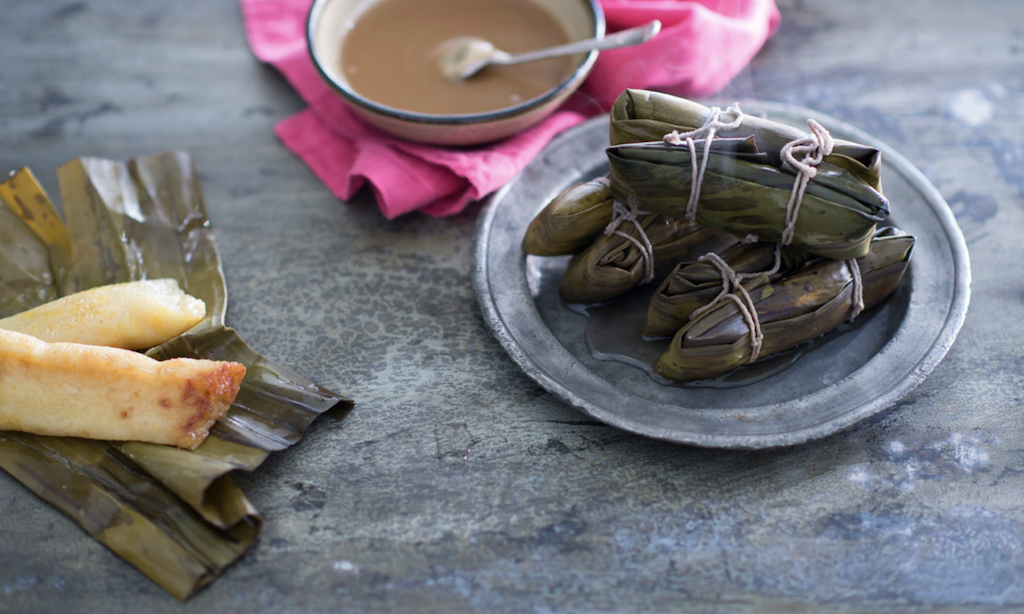
Suman is a type of rice cake made from glutinous rice cooked in coconut milk, and is then wrapped in banana or palm leaves before being steamed. Topped with a sprinkle of coconut sugar caramel and and shredded coconut, this simple yet satisfying snack will cure any hunger pangs in the afternoon.
Taho
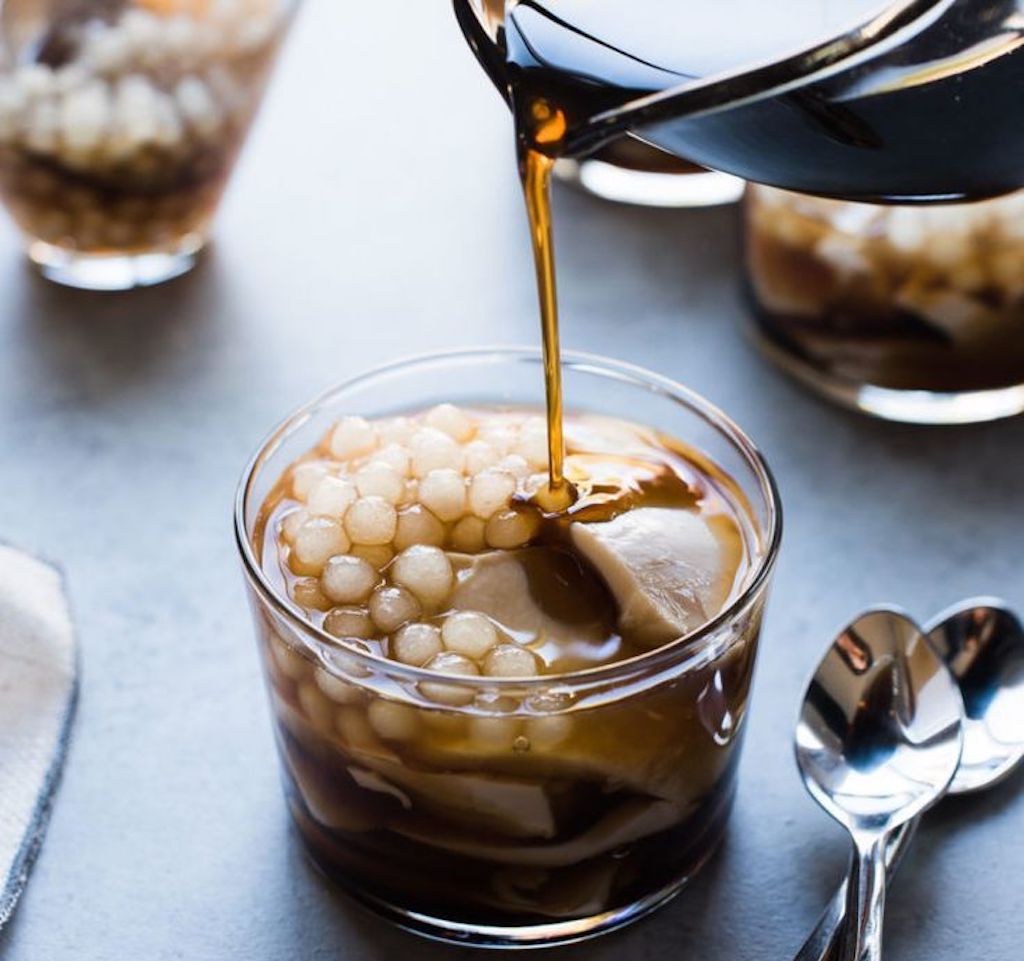
Hot silken tofu with tapioca or sago pearls and sweet syrup? Similar to a Hong Kong-style traditional dessert soup, the Filipino version is more vanilla-y but just as delicious and vegan-friendly.
Kamote-cue
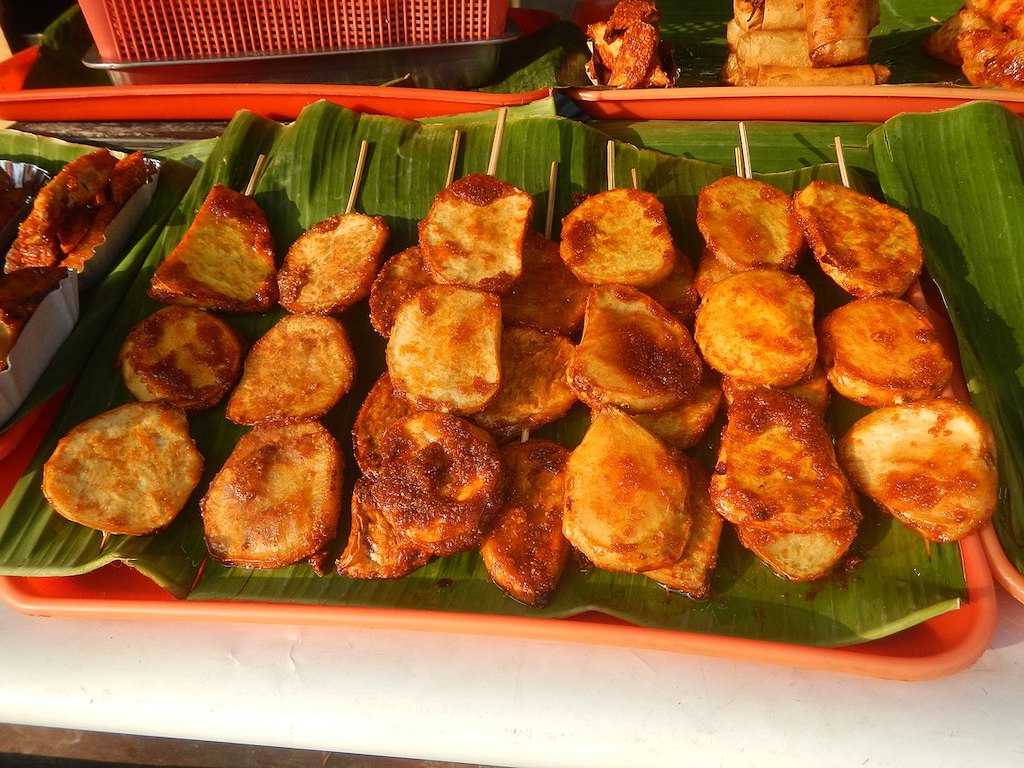
Like banana-cue and turon, kamote-cue is one of the most common street foods found in the Philippines and are deep-fried sweet potatoes coated in sugar. Usually served in skewers, don’t be surprised if you find yourself going back for seconds!
Ginataang bilo-bilo
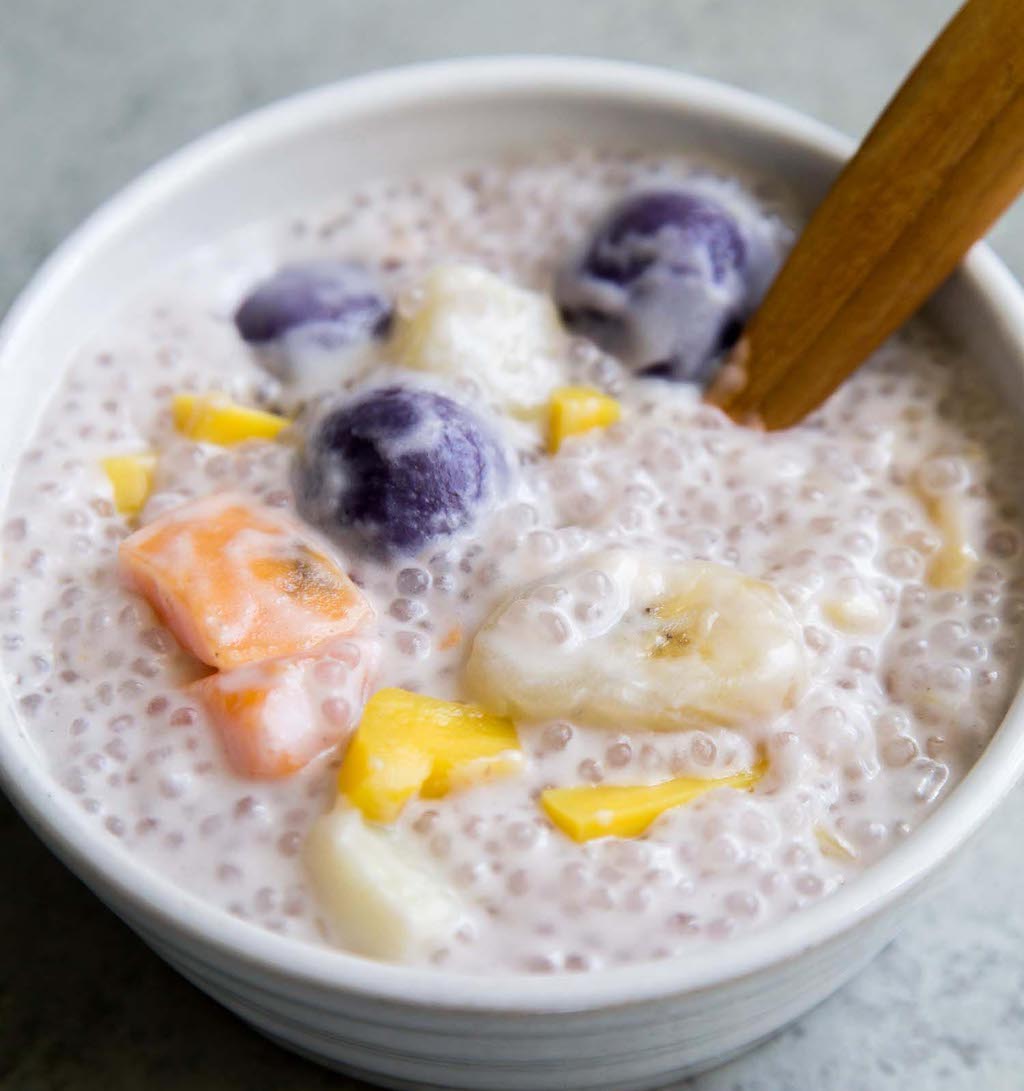
Ginataang bilo-bilo is a hot-serve Filipino street snack made using glutinous rice balls, taro, sweet potatoes, bananas, jackfruit and tapioca. The texture is a bit like mochi, but they are smaller and served in a thick sweet dessert soup with coconut milk. It can also be found in most local eateries called carinderias all over the country.
Buko
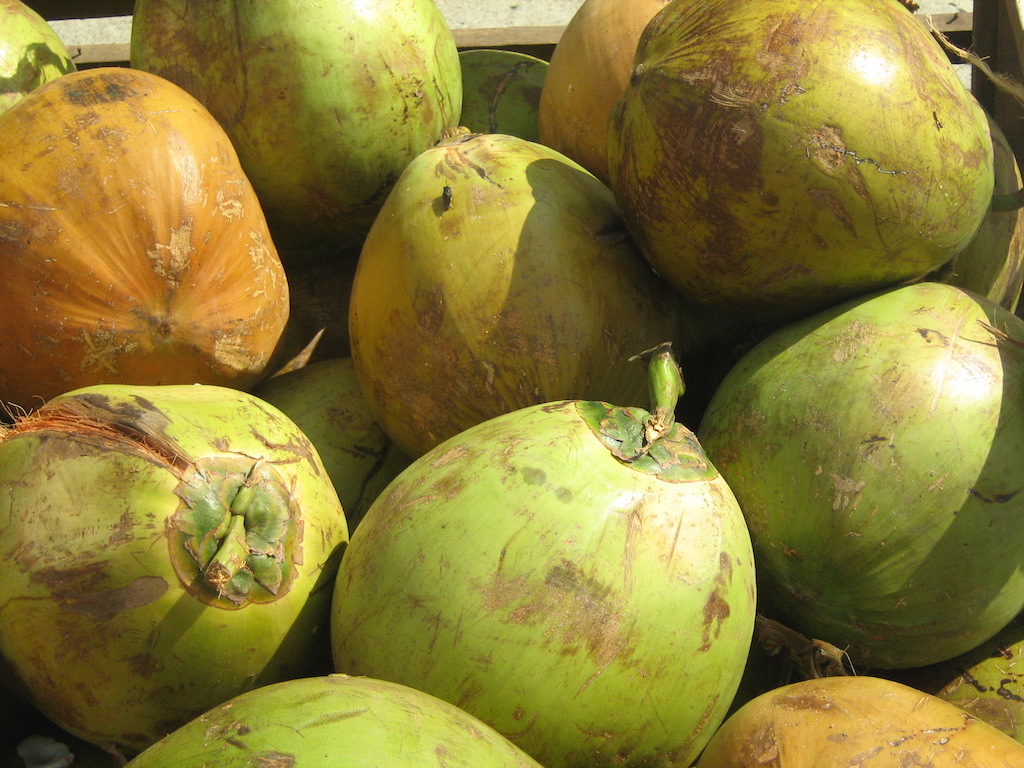
Buko refers to young coconuts – the perfect drink to sip on as you enjoy your plant-based Filipino street food adventure. Most vendors will have a pile of fresh coconuts by their stall, just choose the one you want and it’ll be cut open for you. Remember to bring your own reusable straw!
Ginataang langka
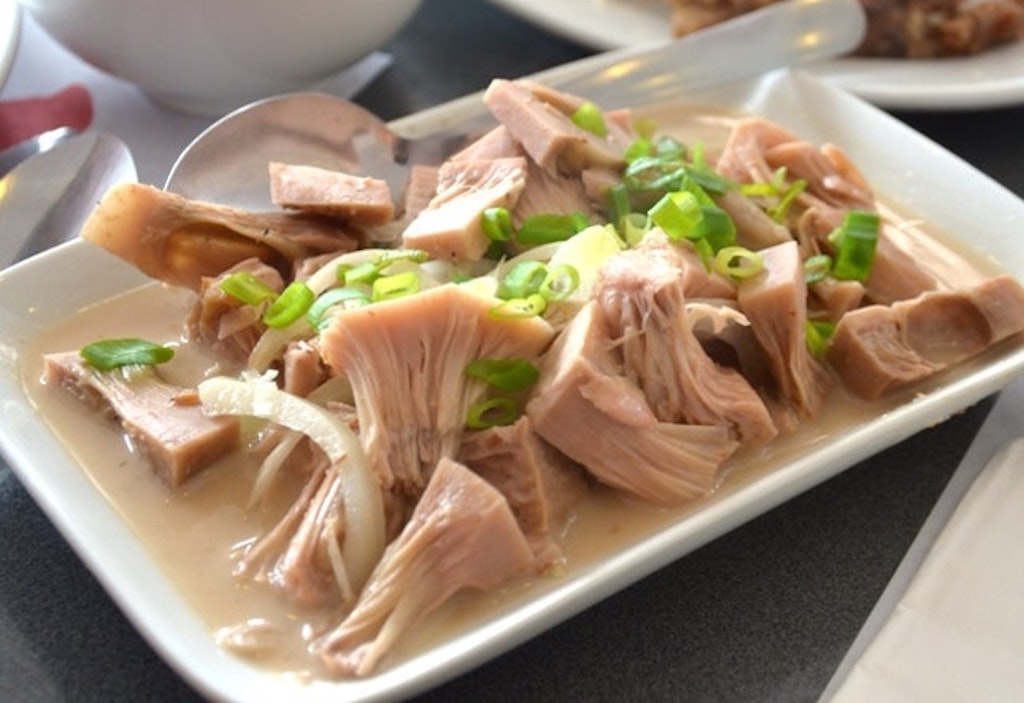
Another delicious jackfruit-based dish is ginataang langka, made using unripe jackfruit chunks, simmered in coconut milk curry until soft. The flesh of the jackfruit is tender and sweet and goes perfectly with rice.
Fresh fruit
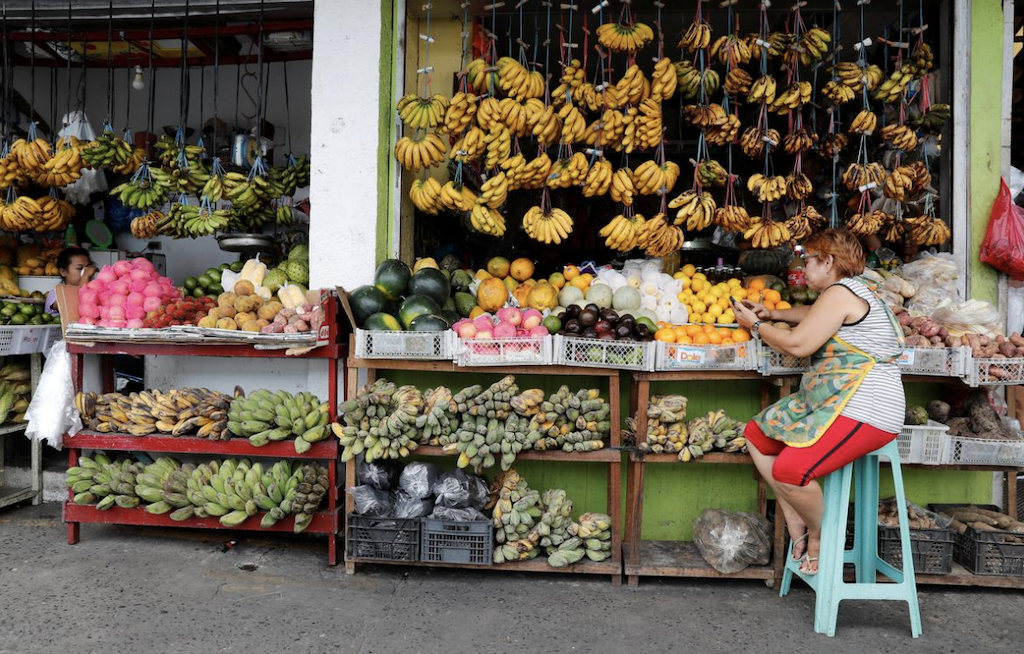
It’s worth highlighting that the Philippines is home to some of the best tropical fruits in the world. Think mangoes, papayas, pineapples, watermelon – and most street food stalls will have a selection of the freshest of the day available. You can even choose to top with tapioca pearls, coconut milk and sweetened beans to take it up a notch.
Lead image courtesy of The Maya Kitchen.

